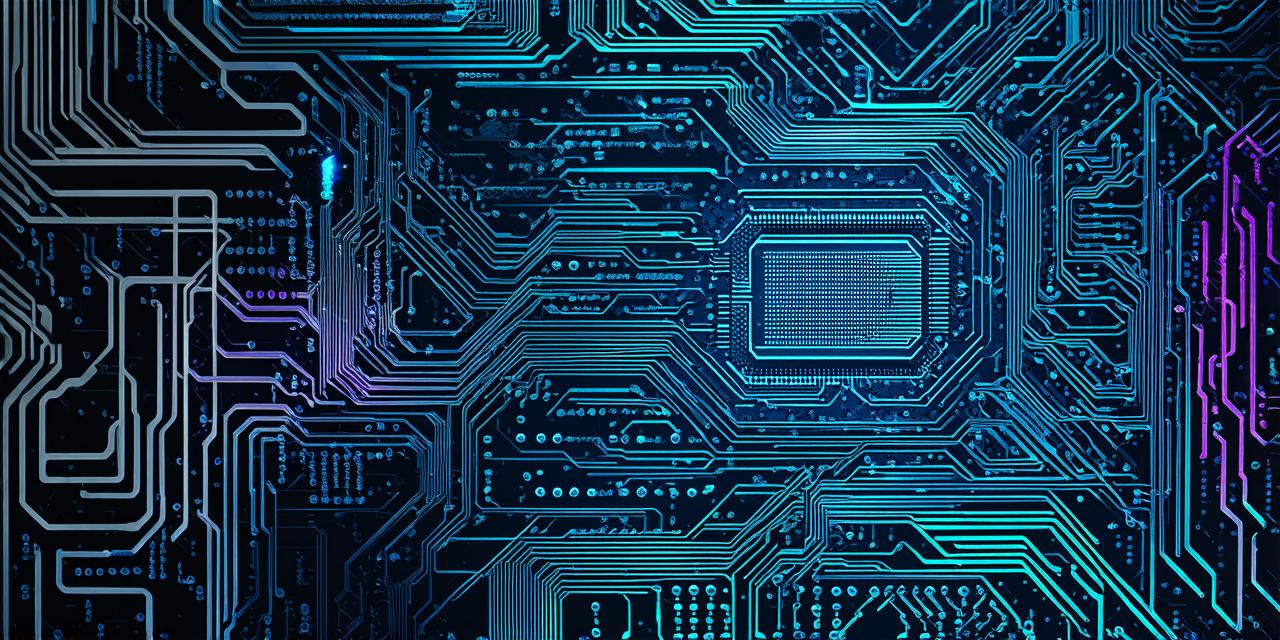Programming Languages for Blockchain Development
Blockchain technology has gained significant attention in recent years due to its potential applications across various industries. One of the key components of building blockchain applications is programming languages used for blockchain development, their features, and use cases.
The Most Popular Programming Languages for Blockchain Development
1. Solidity
Solidity is a programming language specifically designed for writing smart contracts on the Ethereum network. It is an object-oriented, high-level programming language that combines several features of other programming languages such as C++, Java, and Python. Solidity is used to create decentralized applications (dApps) that can interact with smart contracts.
Advantages of Solidity:
- It is specifically designed for writing smart contracts on the Ethereum network, making it a popular choice among developers.
- Solidity is easy to learn and use, even for developers with little experience in programming.
- It has built-in support for security features such as access controls, encryption, and auditing, making it ideal for building secure blockchain applications.
- Solidity supports both public and private networks, allowing developers to choose the network that best suits their needs.
1. Vyper
Vyper is a programming language similar to Solidity, designed specifically for writing smart contracts on the Ethereum network. It was created to be easier to read and write than Solidity, with a more concise syntax that closely resembles Python.
Advantages of Vyper:
- It is designed to be more accessible to developers who are not familiar with object-oriented programming.
- Vyper is easier to read and write than Solidity, making it a popular choice among developers who want to create smart contracts quickly and efficiently.
- Vyper has built-in support for security features such as access controls, encryption, and auditing, making it ideal for building secure blockchain applications.
1. Java
Java is a popular programming language used for developing blockchain applications on various platforms such as Hyperledger Fabric and Corda. It is an object-oriented programming language that has built-in support for security features such as encryption, access controls, and auditing.
Advantages of Java:
- It has a large community of developers and is well-supported by various tools and libraries.
- Java has built-in support for distributed computing, making it ideal for developing scalable blockchain applications.
- Java is easy to learn and use, with a syntax that closely resembles C++ and Python.
1. Go
Go (also known as Golang) is a programming language designed specifically for building distributed systems and blockchain applications. It is an object-oriented programming language that has built-in support for concurrency and security features such as encryption, access controls, and auditing.
Advantages of Go:
- It has a simple syntax that closely resembles C and is easy to learn and use.
- Go has built-in support for concurrency, making it ideal for developing scalable blockchain applications.
- Go has built-in security features such as encryption, access controls, and auditing, making it ideal for building secure blockchain applications.
1. JavaScript
JavaScript is a programming language used for developing dApps on the Ethereum network. It is an object-oriented programming language that combines several features of other programming languages such as C++, Java, and Python.
Advantages of JavaScript:
- It is widely used for web development, making it easy to find developers with experience in JavaScript.
- JavaScript has built-in support for security features such as encryption, access controls, and auditing, making it ideal for building secure blockchain applications.
- JavaScript has a large community of developers and is well-supported by various tools and libraries.
Choosing the Right Programming Language for Your Blockchain Application
When choosing a programming language for your blockchain application, there are several factors to consider:
- The platform you plan to use: If you plan to use the Ethereum network, Solidity and Vyper are popular choices. If you plan to use other blockchain platforms such as Hyperledger Fabric or Corda, Java, Go, and JavaScript may be more suitable.
- Your experience level: If you have experience in object-oriented programming languages such as C++, Java, or Python, Solidity, Vyper, Java, Go, and JavaScript are good choices. If you are new to programming, Vyper and JavaScript may be easier to learn and use.
- Security requirements: All the programming languages mentioned above have built-in support for security features such as encryption, access controls, and auditing. However, some programming languages may have more robust security features than others, depending on your specific needs.
- Scalability requirements: Some programming languages, such as Go and Java, have built-in support for concurrency and distributed computing, making them ideal for developing scalable blockchain applications.

Real-Life Examples of Blockchain Applications Built with Different Programming Languages
Ethereum: Decentralized Finance (DeFi) Applications
Ethereum is the most popular blockchain platform for building decentralized finance (DeFi) applications such as trading platforms, lending and borrowing platforms, and prediction markets. Many DeFi applications are built using Solidity, which is the native programming language of Ethereum.
Hyperledger Fabric: Supply Chain Management Applications
Hyperledger Fabric is a blockchain platform designed for enterprise use cases such as supply chain management, identity management, and voting systems. It is built using Java, which is the native programming language of Hyperledger Fabric. Many supply chain management applications are built using Java on Hyperledger Fabric.
Corda: Financial Services Applications
Corda is a blockchain platform designed for financial services applications such as payment systems, trade finance, and identity verification. It is built using Java, which is the native programming language of Corda. Many financial services applications are built using Java on Corda.
FAQs about Programming Languages for Blockchain Development
1. What is Solidity used for?
Solidity is used for writing smart contracts on the Ethereum network and creating decentralized applications (dApps) that interact with smart contracts.
2. Is Vyper easier to learn than Solidity?
Yes, Vyper is designed to be more accessible to developers who are not familiar with object-oriented programming. It has a simpler syntax and is easier to read and write than Solidity.
3. Can Java be used for developing blockchain applications on Ethereum?
No, Java cannot be used directly for developing smart contracts on the Ethereum network. However, it can be used as a backend language for building dApps that interact with smart contracts.
4. What is the difference between Solidity and Vyper?
Solidity is the native programming language of Ethereum, while Vyper is a simplified version of Solidity that has a simpler syntax and is easier to learn and use.
5. Can JavaScript be used for building blockchain applications on Ethereum?
Yes, JavaScript can be used for building dApps that interact with smart contracts on the Ethereum network. However, it cannot be used directly for writing smart contracts.
Summary
Choosing the right programming language for your blockchain application depends on several factors such as the platform you plan to use, your experience level, security requirements, and scalability requirements. Solidity, Vyper, Java, Go, and JavaScript are some of the most popular programming languages used for blockchain development.
